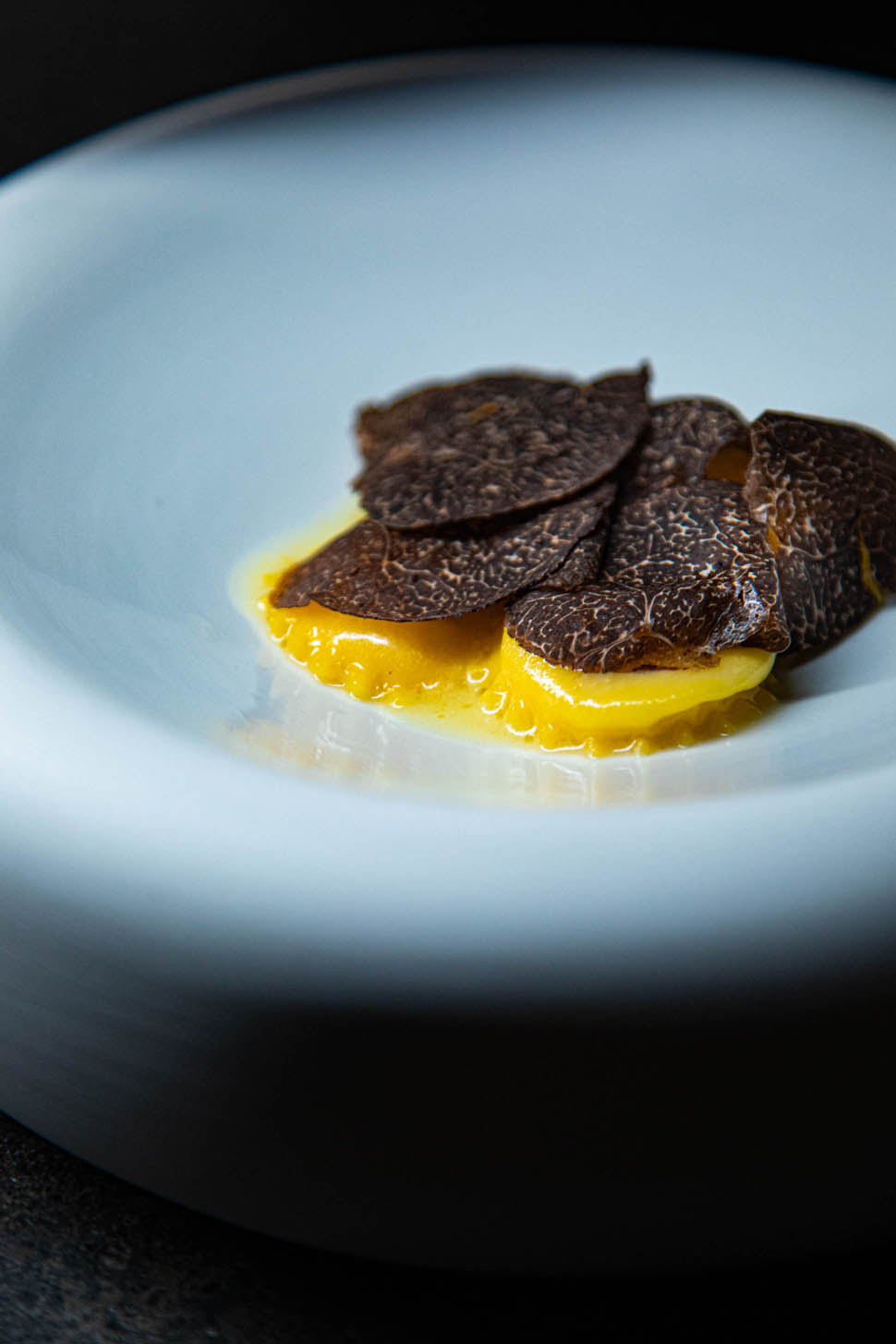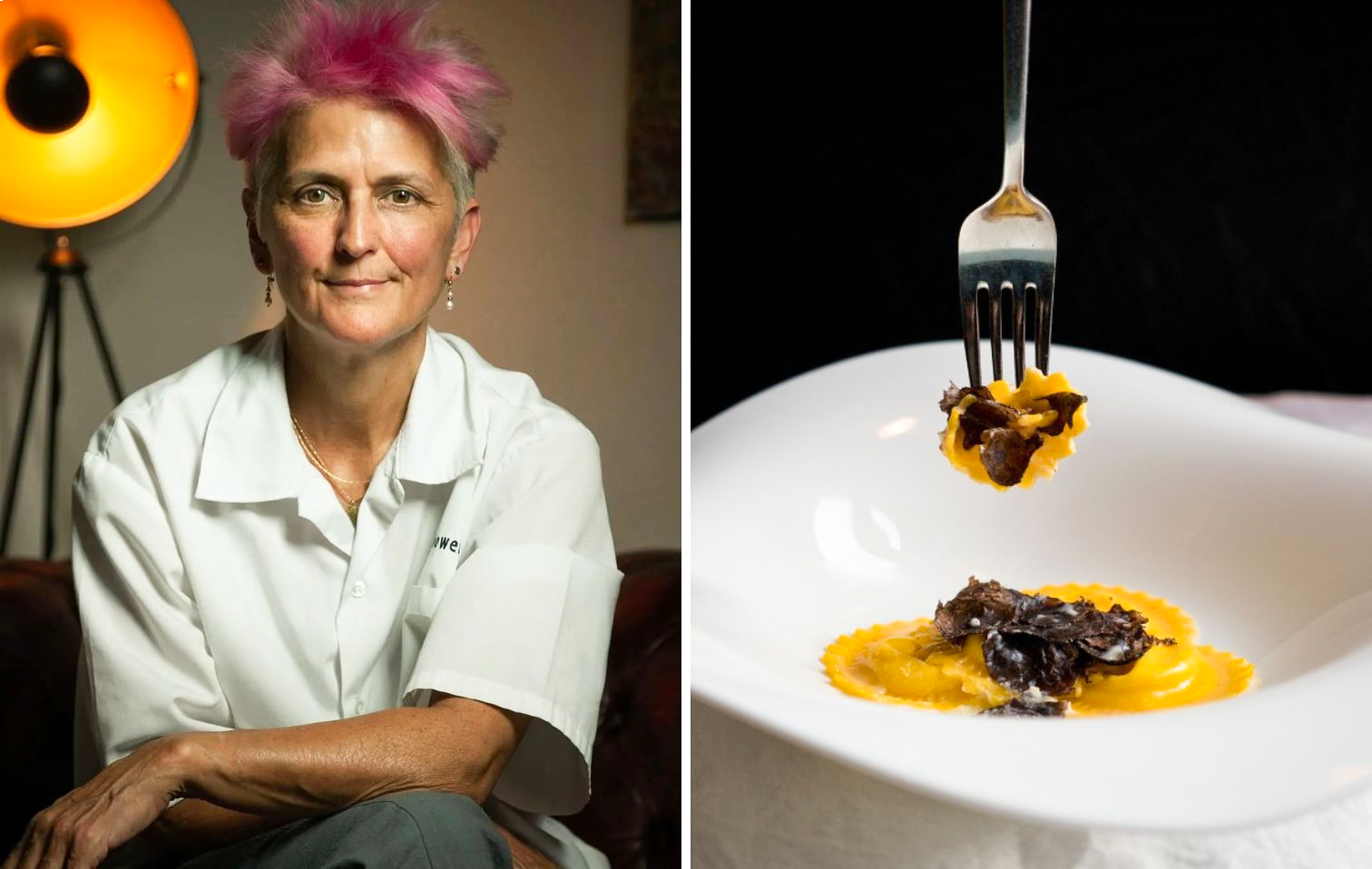Created over ten years ago, these liquid Parmigiano ravioli continue to grace the menu of Glass Hostaria: because they represent a celebration of Italian taste, enhanced by technique, and as a tribute to Stefano Bonilli, who wanted to feature them on his blog.
The Dish
If the liquid Parmigiano ravioli continue to dominate the menu at Glass Hostaria while the whirlwind of other courses spins ceaselessly, it's also for a sentimental reason: the signature was consecrated in 2012 by Stefano Bonilli, who came to dinner with Bob Noto. Enthusiastic, the critic ordered three portions and sang its praises the next day on Papero Giallo. Cristina Bowerman, who was about to remove the dish as she always does, to avoid getting bored, said to herself: "We'll see, let me keep it a little longer." And sales immediately skyrocketed. Then, when Bonilli passed away, it became even more rooted, as a tribute.

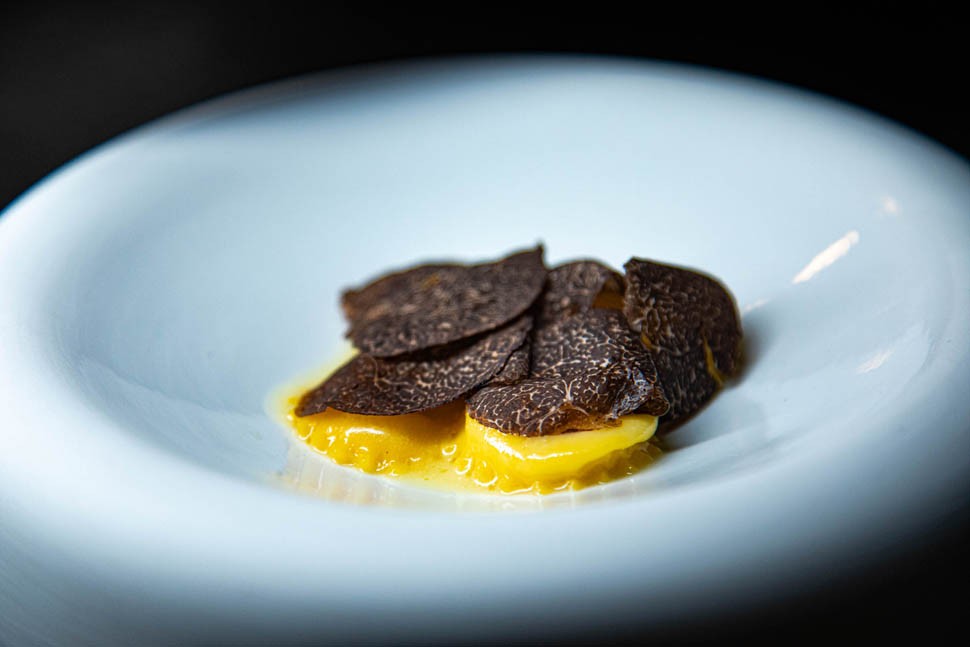
The recipe hasn't changed much since then: maybe it has been refined in composition, increasingly centered around Malandrone 60-month Parmigiano and butter from the Brazzale brothers, not Isigny butter. "Because it's a cross-border, cross-the-globe dish: it pleases people from all over the world and is a great representation of Italian taste. There's the emotional aspect, to which I remain very attached; and there's the fact that it counts among the first courses, where technique enhances Italian taste, without my usual contaminations."
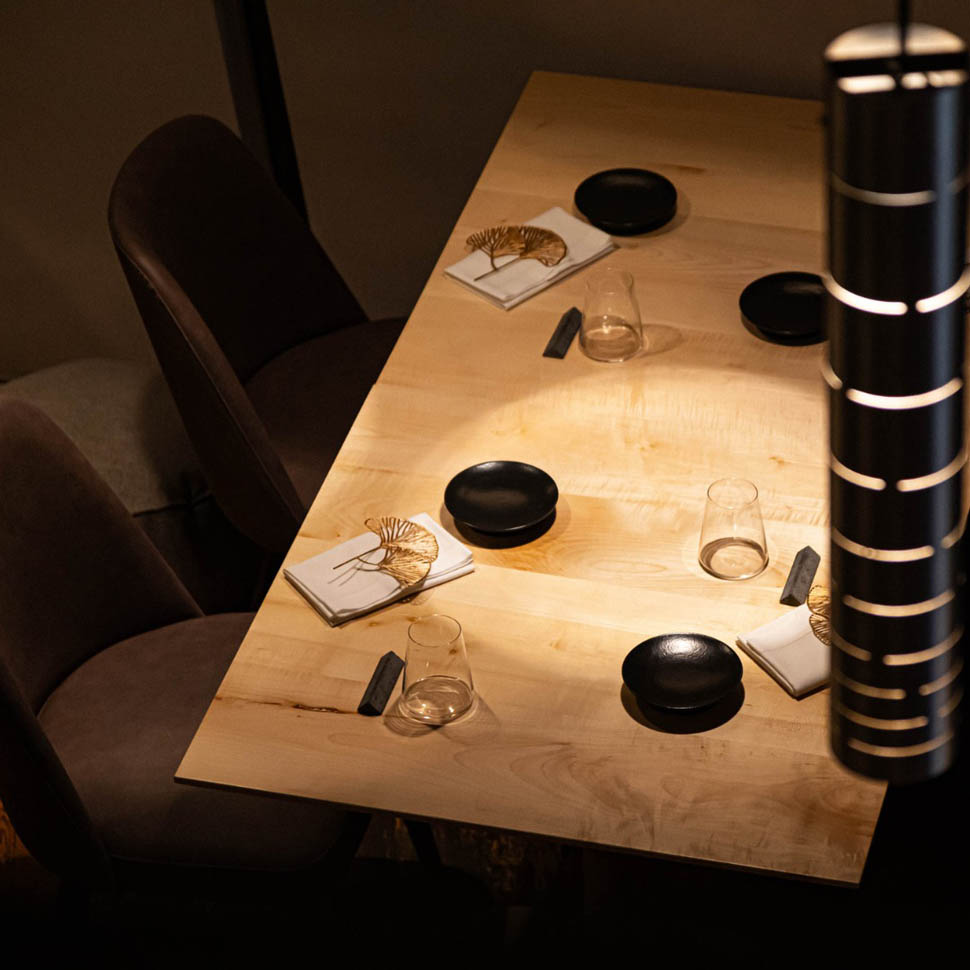
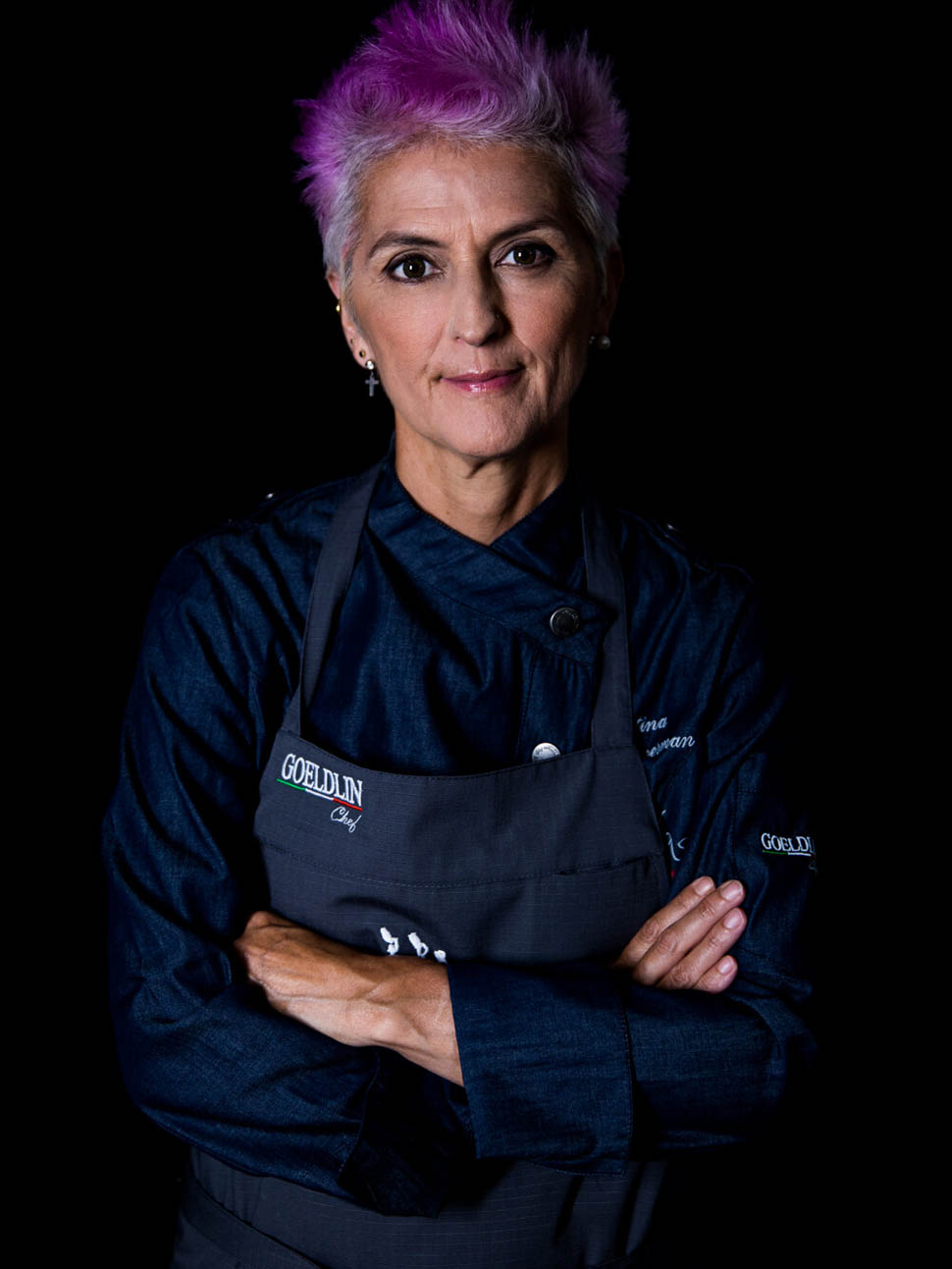
The miracle is achieved thanks to a béchamel mainly based on broth, with very little milk, which helps to prevent the coagulation of the cheese fondue; the Parmigiano is an extremely powerful and deep 60-month aged cheese, with spicy notes, which remains liquid thanks to the use of very little gelatin. Made with all yolks, the pasta sheet must be very thin in this case, because the filling is the star, unlike the amatriciana ravioli, which have a creamy filling. The risk is that it becomes moist and breaks, so the ravioli must be made and cooked on the spot, or frozen and served the same day. The seasoning, then, depends on the season: white and black truffles, asparagus, mushrooms, even tomato, although less appreciated. So they can remain on the menu all year round. The pairing changes according to the seasoning, but the dish is intense and structured enough to withstand, in addition to Champagne, even a Barolo from Prunotto.
Ravioli filled with 60-month Parmigiano fondue, black truffle, and Brazzale brothers' butter
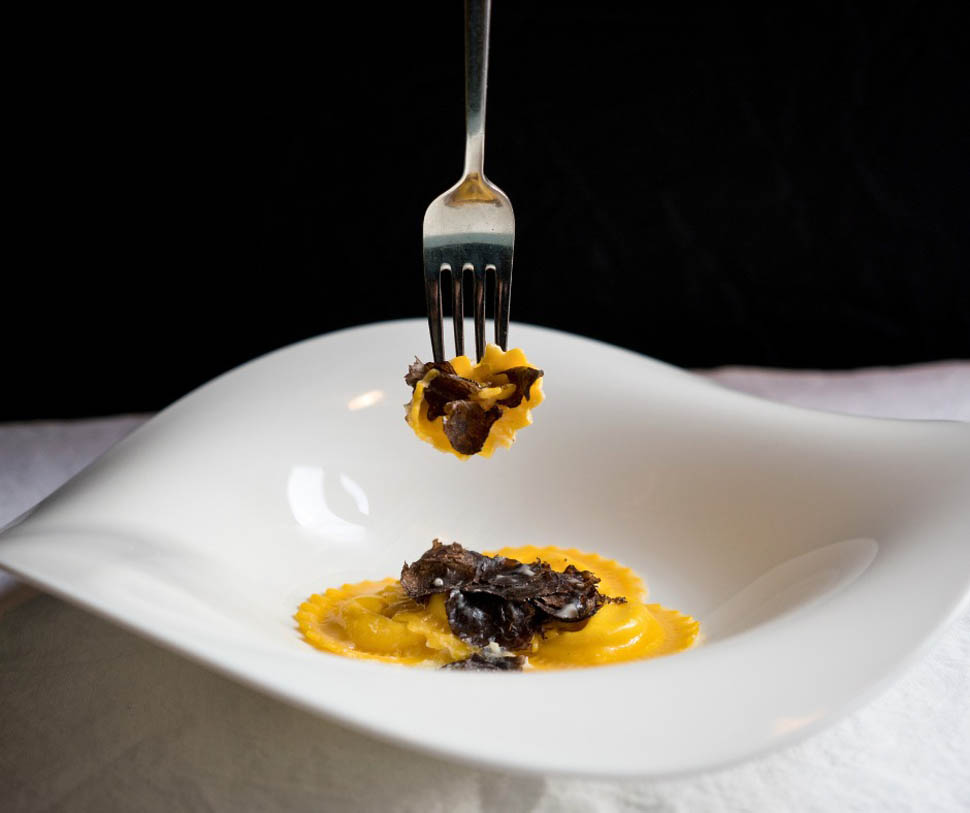
Ingredients for 8 people
For the pasta
- 390 g of egg yolks
- 500 g of flour for fresh pasta
- Salt
Method
Make a flour mound, then make a well into the mound large enough to hold your egg yolks; pour in the egg yolks. Incorporate the flour until you get a moist and soft dough and let it rest for at least 2 hours in a cool place, covered with a cloth. Alternatively, use a mixer.
For the filling
- 1 liter of vegetable broth
- 250 g of whole milk
- 30 g of butter
- 20 g of flour
- The crust and 100 g of 60-month aged Parmigiano Reggiano
- 25 g of gelatin
Method
Heat the vegetable broth with the Parmesan crust and strain. With butter and flour, prepare the base for a very light and liquid béchamel, using 3/4 of vegetable broth and 1/4 of milk. Add the grated Parmesan cheese (calculate 100 g for half a kilo of béchamel) and blend with an immersion blender or in a food processor. Dissolve the fish glue previously soaked in cold water in half of the remaining warm vegetable broth. Add to the fondue, mix well, and pass through a sieve. Transfer to a pastry bag and let it set in the refrigerator until ready to use.
Roll out a fairly thin dough, place the spoonfuls of fondue on one half, cover with the other half, and cut with the appropriate tool, sealing the edges well.
To give the pasta a creamy consistency (mantecare)
- Butter, to taste
- Black truffle
Method
Cook the ravioli, drain them, and sauté them in a pan with high-quality butter and vegetable broth. Serve, if desired, with shavings of black truffle.
Contacts
Glass Hostaria
Vicolo del Cinque, 58, 00153 Rome RM
Phone: 06 5833 5903
